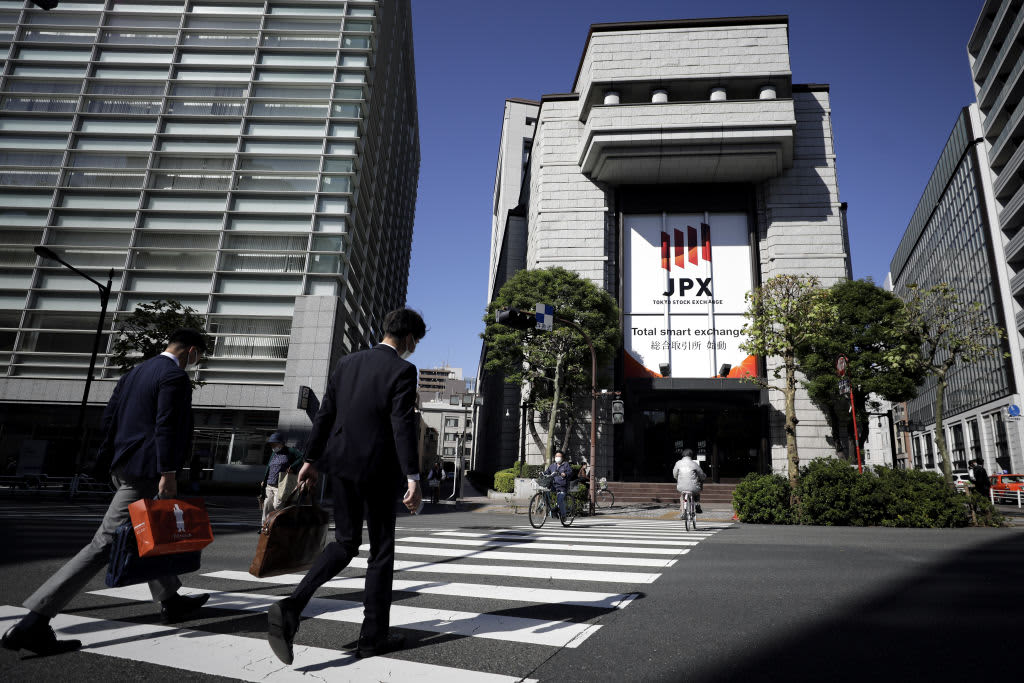
Hong Kong stocks plunged on Thursday, snapping a six-day winning streak, as the China stimulus rally appeared to ease.
The Hang Seng index closed 1.47% lower to end at 22,113.51, coming off a strong session on Wednesday that sent the index to its highest level since January 2023.
Hang Seng Mainland Properties Index briefly had declined as much as 10% before paring some of the losses. Hang Seng Tech Index fell 3.46% to 4,978.64.
Markets in mainland China remain closed until Oct. 8. Chinese stocks had been on a tear after authorities announced a slew of support measures last week.
Beijing is widely anticipated to unleash more fiscal policies and support measures in the coming months, but “the eventual scale and content of the fiscal package might be quite improvised and uncertain,” Ting Lu, chief China economist at Nomura said in a note, adding that investors should exercise “more sober assessment” amid the recent market frenzy.
Elsewhere, most Asian markets traded higher, with Japan’s Nikkei 225 leading with nearly 2% gains to close at 38,552.06. The broad-based Topix added 1.2% to end at 2,683.71.
The yen strengthened slightly to 146.42 against the U.S. dollar, a day after clocking its largest single-day decline since June 2022.
On Wednesday, Japan’s new prime minister, Shigeru Ishiba, told reporters economic conditions don’t currently support another rate hike. Ishiba made his comments after meeting with Bank of Japan Governor Kazuo Ueda.
Investors will parse through the busy slate of data out Thursday. Australia’s seasonally adjusted Judo Bank Composite PMI data came in at 49.6 in September, lower from the 51.7 in August, falling past the 50 neutral mark. The services PMI posted 50.5, down from 52.5 in August.
The Australian Bureau of Statistics reported the country’s trade surplus came in at 5.64 billion Australian dollars ($3.87 billion) in August, higher than the AU$5.5 billion estimated in a Reuters poll but down from AU$6.01 billion in July. Both imported and exported goods contracted 0.2% from the previous month, the data showed.
Australia’s S&P/ASX 200 closed slightly above the flatline at 8,205.2.
Japan’s au Jibun bank composite final PMI, which takes into account both manufacturing and service activities, for September stood at 52.0, signaling a softer expansion in the private sector compared to 52.9 in August, according to the private survey conducted by S&P Global Intelligence. The service sector PMI, compiled from around 400 survey responses, was 53.1 in September, lower than the 53.7 in August.
Other data on tap include August retail sales from Hong Kong.
South Korea were shut Thursday for National Foundation Day. Taiwan markets remain closed for a second day as Typhoon Krathon approached, bringing strong rain and heavy winds.
Elsewhere, Middle East conflicts were in focus this week as markets brace for more uncertainty in the region. Israel started a ground operation into Lebanon and conducted more airstrikes, while Iran launched a ballistic missile attack in retaliation for its recent killing of Hezbollah leader Hassan Nasrallah.
Overnight in the U.S., the three major U.S. indexes closed slightly above the flatline as Middle East tensions weighed. The S&P 500 added just 0.01% to close at 5,709.54, and the Dow Jones Industrial Average added roughly 39 points to close at 42,196.52. The Nasdaq Composite gained 0.08% to 17,925.12.
Source: CNBC
